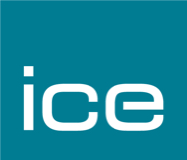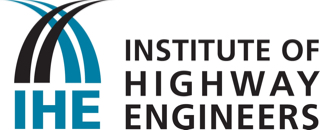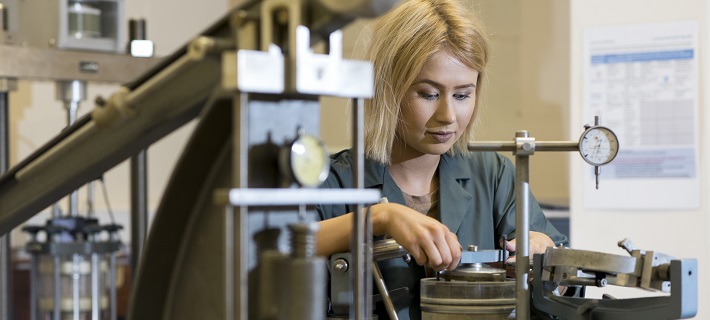Civil Engineering
Civil
Engineering
Develop expertise in fundamental civil engineering principles to enhance the quality of life for present and future generations.
Civil Engineering is everything you see that’s been built around us, the kind of things we take for granted everyday but would find life hard to live without: roads and railways, schools and hospitals or water and power supplies. Civil engineers design, create, connect and change the world, making our places work for the people that live there, and working on projects that can make a real difference to people’s lives.
Engineering students at Warwick develop an in-depth understanding of the fundamental principles of Engineering by following a general engineering programme at the start of their time with us. Thereafter, those choosing to specialise in Civil Engineering will develop expertise in the fundamental principles of analysis, design, sustainability and safety, to enhance the quality of life for present and future generations.
Teaching and learning at Warwick takes place in an open and engaging environment with top-class facilities. You will have the opportunity to conduct research projects in different labs and take modules related to current research in a range of civil engineering fields. Visits to construction sites, and lectures and seminars from experts in industry provide insights into the latest civil engineering practices.
Regular individual and group projects tackle industrial challenges such as the design, building and testing of structures, the development of a robotic construction scheme, designing civil engineering works on a high speed railway or providing engineered solutions for the urban development of poor communities. You will also take part in fieldwork, which will be the opportunity for students to apply the knowledge gained during their geotechnical and environmental engineering studies.
Career destinations for our graduates often include working for consultants and contractors across the specialisms of structures, geotechnics, tunnelling and underground space, water engineering, transportation and energy. Our graduates work as professional and highly proficient engineers in a range of exciting and rewarding careers.
- BEng Civil Engineering (H200)
- MEng Civil Engineering (H202)
-
Engineering students at Warwick develop an in-depth understanding of the fundamental principles of engineering by following a general engineering programme at the start of their time with us. Thereafter, those choosing to specialise in Civil Engineering will develop expertise in the fundamental principles of analysis, design, sustainability and safety, to enhance the quality of life for present and future generations.
If you aspire to achieve Chartered Engineer (CEng) status, a degree from Warwick is a great starting point. The majority of our degrees are accredited by licensed professional engineering institutions, such as the IET, IMechE and JBM and provide the academic component (in part or fully) needed for Chartered Engineer status.




The MEng Accredited CEng (Full) degree is accredited by the Joint Board of Moderators (JBM) comprising the Institution of Civil Engineers, Institution of Structural Engineers, Institute of Highway Engineers, and the Chartered Institution of Highways and Transportation on behalf of the Engineering Council as fully satisfying the educational base for a Chartered Engineer (CEng). See www.jbm.org.ukLink opens in a new window for further information.
The BEng (Hons) Accredited CEng (Partial) degree is accredited by the Joint Board of Moderators (JBM) comprising the Institution of Civil Engineers, Institution of Structural Engineers, Institute of Highway Engineers, and the Chartered Institution of Highways and Transportation on behalf of the Engineering Council as:
1. fully satisfying the educational base for an Incorporated Engineer (IEng).
2. partially satisfying the educational base for a Chartered Engineer (CEng).
A programme of accredited Further Learning will be required to complete the educational base for CEng. See www.jbm.org.ukLink opens in a new window for further information and details of Further Learning programmes for CEng.
Entry requirements are published on the University website:
BEng Civil Engineering 2026Link opens in a new window
MEng Civil Engineering 2026Link opens in a new window
Applications are made through UCAS. Further information and guidance about the admissions process is available on the University websiteLink opens in a new window.
Come and see for yourself what Warwick is all about! Our University Open DaysLink opens in a new window give you the chance to visit the School of Engineering, see the facilities, meet staff and students, tour the campus and get a real feel for life at Warwick. If you apply to study at Warwick and are subsequently made an offer, you may also be invited to an Offer Holder Open Day.
We offer flexible degree programmes that enable you to experience a range of engineering disciplines before you decide to specialise.
All first year students study a general engineering programme, which is much favoured by industry. After the first year, you can specialise in Civil Engineering, choose another specialism or continue on the General Engineering pathway.
Students can also switch from the three-year BEng to the four-year MEng degree if academic requirements and regulations are met, and from the MEng to the BEng if they prefer to graduate earlier.
Year 1
In your first year you will be taught the fundamentals of engineering, which you will build on in later years according to your interests.
Core modules
- Dynamics and Thermodynamics (ES190Link opens in a new window)
- Electrical and Electronic Circuits (ES191Link opens in a new window)
- Engineering Design (ES192Link opens in a new window)
- Engineering Mathematics (ES193Link opens in a new window)
- Engineering Business Management and Professional Skills (ES194Link opens in a new window)
- Materials for Engineering (ES195Link opens in a new window)
- Engineering Structures (ES196Link opens in a new window)
- Systems Modelling, Simulation and Computation (ES197Link opens in a new window)
Year 2
Core modules
- Dynamics and Fluid Mechanics (ES2C5Link opens in a new window)
- Engineering Mathematics and Data Analytics (ES2C7Link opens in a new window)
- Creative and Conceptual Design (ES2H2)
- Materials for Net Zero (ES2G8)
- Design, Surveying and Field Practice (ES2G7)
- Structural Analysis and Design (ES2H4)
- Hydraulics and Water Resources (ES2G9)
Examples of optional modules
- Computer Architecture and Systems
- Systems and Software Engineering Principles
- Technology in International Development
- Introduction to Secondary Mathematics/Physics Teaching
- A Modern Foreign Language
- Starting a Business
Year 3
Core modules
- Managing Engineering Excellence (ES3K4)
- Structural Concrete Design (ES3D1Link opens in a new window)
- Structural Steel Design (ES3D2Link opens in a new window)
- Geology and Soil Mechanics (ES3J7)
- Design of Earth Structures (ES3K1)
- Design Project with Construction Management (ES3E1) - BEng Only
- Individual Project - MEng Only
Examples of optional modules
- Modelling for Computational Design
- Finite Element Methods
- Lean Operations and Quality Improvement
- Coastal and Flood Resilience
Year 4 (MEng only)
Core modules
- Sustainable Ground Engineering (ES4D8)
- Construction Project Management (ES4D5Link opens in a new window)
- Water and Sanitation Technologies (ES4B6Link opens in a new window)
- Design for Sustainability (ES4A8)
- Group Project (ES410Link opens in a new window)
Examples of optional modules
- Structural Dynamics and Health Monitoring
- Quality Systems
- Renewable Energy
Detailed information for each module can be found on this webpage.
We are constantly evolving our courses to keep up with developments in engineering and requirements from industry, so it is important you check our website for the most up-to-date on module availability.
Intercalated degrees
Students may choose to spend a year in industry, research or study abroad between years two and three, or between year three and four for MEng. If you choose to take an intercalated year, this will be reflected in your degree title, and add a year to your degree programme.
Tuition fees
Please see the University website for details of tuition fees, financial support and the cost of living.
Scholarships
The School of Engineering is privileged to attract high fliers and seeks to recognise and promote achievement, talent, ideas, hard work and diversity. We regularly offer a number of scholarships.
Career destinations for civil engineers often include working for consultants and contractors across the specialisms of structures, geotechnics, tunnelling and underground space, water engineering, transportation and energy. Our graduates work as professional and highly proficient engineers in a range of exciting and rewarding careers.
This year my individual project has been based around the performance of timber structures in fire. I'm pleased that I've been able to carry out research related to sustainability and efficiency of design. It has prompted me to consider the wider implications of a civil engineer's work.
Ollie, 3rd year Civil Engineering student
Why Warwick?
Essential information
UCAS code
H200 (BEng)
H202 (MEng)
Duration
BEng 3 years full time
MEng 4 years full time
30 weeks per academic year
Application deadline
14 January 2026
Location of study
University of Warwick, Coventry
Tuition fees
Find out more about fees and funding.
Other course costs
There may be costs associated with other items or services such as academic texts, course notes, and trips associated with your course. For further information on the typical additional costs please see the University course pages.Link opens in a new window
Enquiries
For all enquiries on our Engineering degrees, please contact engadmissions at warwick dot ac dot uk
Download brochure Link opens in a new window
This information is applicable for 2026 entry.

